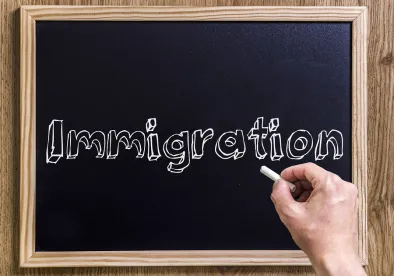The Proposed Rule would implement provisions of the AC21 and introduce significant reforms to the employment-based immigration process.
On New Year’s Eve 2015, US Citizenship and Immigration Services (USCIS) published a Proposed Rule that will significantly affect the ability of employers to employ and retain foreign national workers in the United States.
The Proposed Rule formalizes a number of procedures that have existed for years in the nonimmigrant and immigrant (green card) spheres and also introduces certain novel provisions to both. USCIS has invited comments on the Proposed Rule, which must be received no later than February 29, 2016. After the comment period, we expect the USCIS to issue a Final Rule that takes into account the comments received, and therefore the Final Rule may differ from the Proposed Rule.
This article covers the most salient provisions of the Proposed Rule, which we will follow with a more comprehensive analysis in the upcoming weeks.
Formalization of Certain AC21 Provisions
The Proposed Rule introduces a number of mechanisms created by the American Competitiveness in the Twenty-First Century Act of 2001 (AC21) into USCIS regulations. These include the following:
-
One- and three-year H-1B extensions available to foreign nationals who have started the green card process
-
Immigrant portability mechanism that allows certain adjustment of status applicants to change employers or jobs without negatively affecting their green card process
-
H-1B portability mechanism that allows the start of H-1B employment before an H-1B petition is approved
-
Methodology for calculating how much time an H-1B beneficiary may remain in the United States, taking into account time spent outside the country
-
Methodology for determining H-1B cap exemptions based on employment by or at certain organizations
-
Certain whistleblower protections for H-1B workers
None of these mechanisms is revised in a significant way by the Proposed Rule.
“Retention” of Certain Employment-Based Immigrant Petitions
The Proposed Rule provides—in the interest of enhancing job portability for backlogged green card applicants—that once 180 days have passed since the approval of the Form I-140 immigrant petition, such petition would no longer be automatically revoked because of withdrawal by the petitioner or the petitioner’s cessation of business. Such petitions would continue to be valid for immigrant petition portability and H-1B extension purposes. Beneficiaries of such petitions would need to obtain new job offers (and, if applicable, new immigrant petition approvals) before becoming permanent residents, however. Petitions revoked for fraud or material misrepresentation, as well as petitions that are based on labor certifications that have been revoked or invalidated, would not be covered by this provision. Petitions approved as a result of “USCIS error” would also not be eligible for such continuing validity.
A significant impact of this provision is that it allows immigrant petition portability applications to enjoy portability even in situations where the petitioner that filed the underlying immigrant petition has gone out of business. Under longstanding practice, immigrant petition portability has been allowed in situations where a petitioner has withdrawn an underlying immigrant petition.
Priority Date Retention
The Proposed Rule seeks (again, in the interest of enhancing job portability for backlogged green card applicants) to clarify when such applicants may retain the priority dates from earlier filed Form I-140 immigrant petitions. Under the Proposed Rule, approved immigrant petitions would remain valid for priority date retention purposes even after withdrawal by prior petitioners. Again, petitions that have been revoked for fraud or material misrepresentation, as well as petitions that are based on labor certifications that have been revoked or invalidated, would not be covered by this provision.
60-Day Post-Termination Grace Period for Nonimmigrant Workers
The Proposed Rule would allow employees in E-1, E-2, E-3, H-1B, H-1B1, L-1, and TN status to receive a “one time” grace period of up to 60 days after termination of employment to remain in the United States to seek new employment or “wind down” their personal affairs. This is not a 60-day extension of employment authorization; employment can be sought but not held during the 60-day grace period. Nonimmigrants in O-1 status are not eligible for such grace periods. This signifies a welcome retreat from the USCIS’ traditional position that nonimmigrant status ends immediately upon the termination of employment.
USCIS will have discretion to reduce or disallow the 60-day grace period on a case-by-case basis.
10-Day Grace Period for H-1B Workers Extended to Other Nonimmigrants
The regulatory provision that allows H-1B workers to enter the United States 10 days before the start of the validity period of their H-1B petitions and to defer their departure from the country for up to 10 days after such a period ends would be expanded by the Proposed Rule to cover nonimmigrants in E-1, E-2, E-3, L-1, and TN status. Employment during the 10-day grace period can be sought but not held. Again, nonimmigrants in O-1 status are not eligible for such grace periods.
Eligibility for EADs for Certain Immigrant Petition Beneficiaries
The Proposed Rule would allow certain approved Form I-140 immigrant petition beneficiaries whose priority dates are not current to receive Employment Authorization Documents (EADs) in one-year increments if they hold E-3, H-1B, H-1B1, L-1, or O-1 status and are experiencing “compelling circumstances.” The Proposed Rule does not specifically define what constitutes a “compelling circumstance,” but provides a series of examples, including serious illness and disability, employer retaliation, substantial harm to the foreign national, and significant disruption to the employer. The “significant disruption” category includes an example in which an L-1 worker becomes ineligible for this status as a result of corporate reorganization. A determination of whether or not a “compelling circumstance” exists will be solely within the discretion of the USCIS.
Extension of EAD Validity for Renewal Applicants
The Proposed Rule allows certain EAD renewal applicants to receive automatic 180-day extensions of employment authorization, provided that the renewal application was timely filed and is based on the same employment authorization category as the prior EAD. Please note that this automatic extension would not be available to spouses of E-1, E-2, E-3, H-1B, and L-1 nonimmigrants who are seeking renewals of EADs based upon their derivative status.
The Proposed Rule also formally eliminates the regulatory requirement that EAD applications be adjudicated within 90 days of filing, and that interim EADs be issued after the 90-day period. This requirement has historically been widely ignored by the USCIS, so this elimination is largely academic.





 />i
/>i

